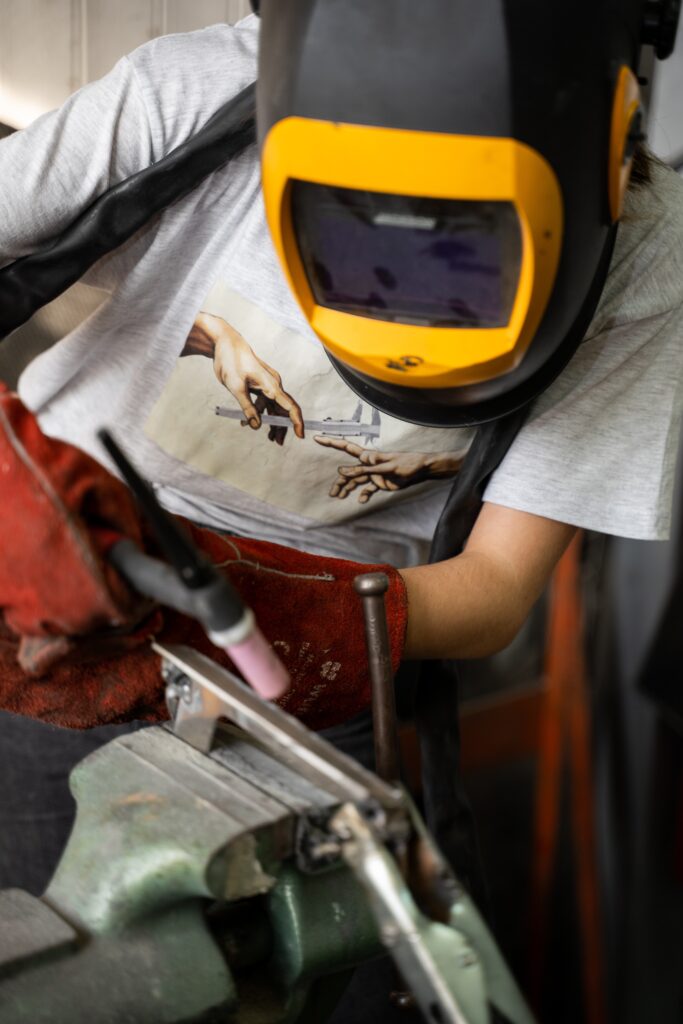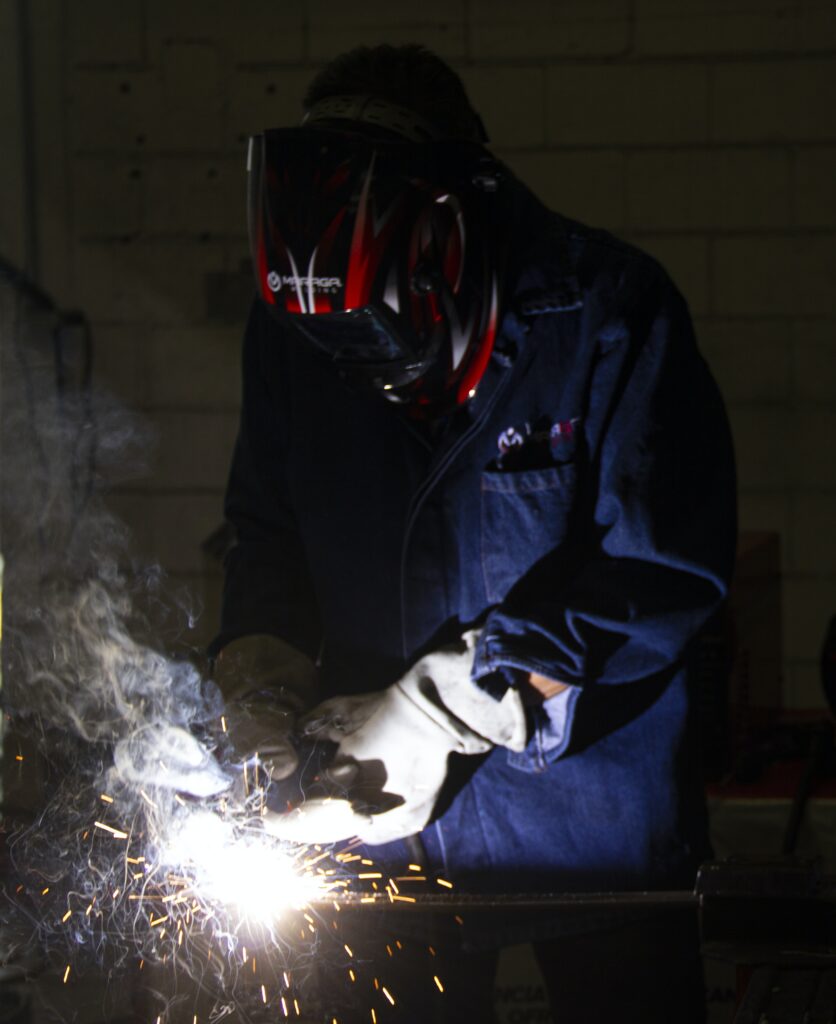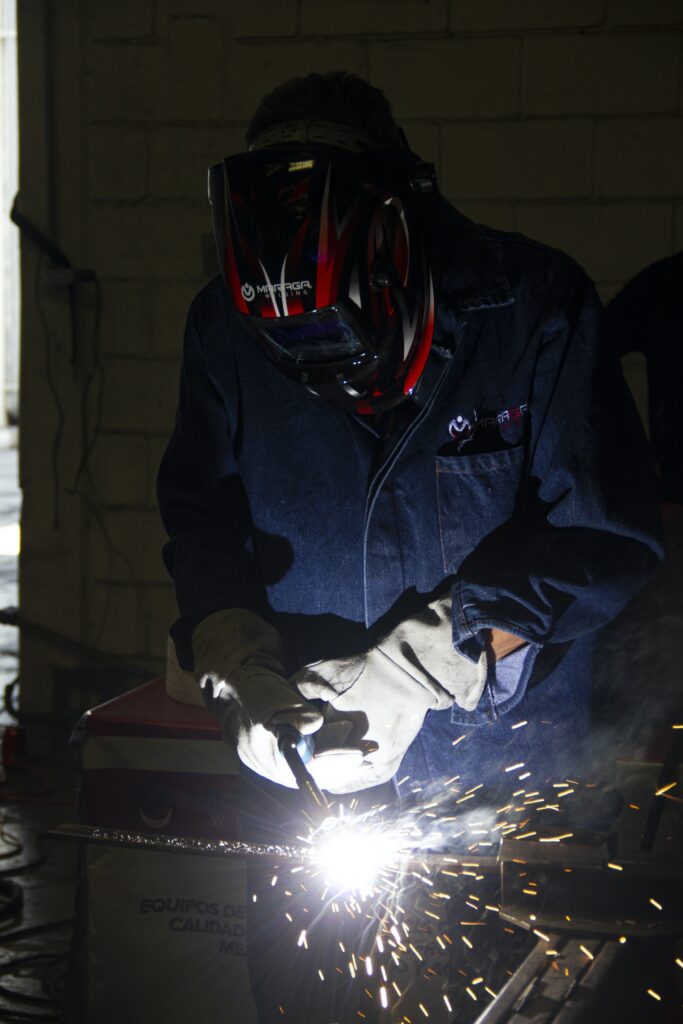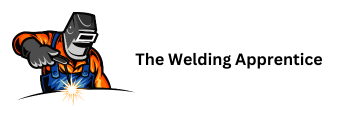If you’ve been dreaming about kick-starting your career in welding, then you’re in the right place! In the forthcoming article, you will find all the necessary steps and tips to secure a promising welding apprenticeship. The write-up uncovers the secrets of the trade, and through its insightful content promises to guide you along that not-so-beaten path. Don’t miss out on the chance to fast-track your welding career with “How To Find A Welding Apprenticeship.” Let your journey to mastery begin!

Understanding Welding Apprenticeships
Gaining insights into the world of welding apprenticeships can set the foundation for your journey into this skilled trade. Here’s what you should know:
What is a welding apprenticeship
A welding apprenticeship is a structured program combining both on-the-job training and classroom instruction. This program allows you to learn the practical aspects of welding from experienced professionals while also understanding the technical theory behind it.
Benefits of a welding apprenticeship
Welding apprenticeships come with multiple benefits. They provide hands-on experience, and an opportunity to earn while you learn. This path allows you to avoid the hefty student loan debt that many face after college. Furthermore, apprenticeships often lead to job offers from the host company, thus making the transition into employment smoother.
Typical duration and structure of a welding apprenticeship
Typically, a welding apprenticeship lasts between 3 to 5 years, depending on the complexity of the discipline you choose. The exact structure may vary, but most involve a combination of practical experience and theoretical learning. You might find yourself working under the guidance of experienced welders during the day and attending classes in the evening.
Basic Requirements for a Welding Apprenticeship
Just like any other profession, certain requirements need to be met to embark on a welding apprenticeship:
Age and education prerequisites
You must usually be at least 18 years old and have a high school diploma or its equivalent to qualify for an apprenticeship. You might also need good grades in mathematics and science due to the technical nature of the profession.
Skills and aptitudes necessary
Welding requires good hand-eye coordination, manual dexterity, and attention to detail. An understanding of machines and tools is also beneficial, as well as an aptitude for technical drawings and blueprints.
Physical fitness requirements
As a physically demanding job, welders need to be in good physical condition. You may need to lift heavy objects, operate machinery, and work in uncomfortable positions for extended periods.
Building Essential Welding Skills
Before you step into the field, developing your welding skills is vital:
Learning basic welding techniques
It’s crucial to understand and master the fundamental welding methods and techniques. This essential knowledge will come in handy during your practical training.
Understanding safety procedures
Welding involves a level of risk, including fire hazards and toxic fumes. Ensuring your safety and those around you should be paramount. Understand and adhere to all safety procedures related to welding.
Gaining relevant certifications
Having relevant and recognized welding certifications can make you a more attractive candidate. Certifications also enhance your knowledge base and practical skills.
Looking for Welding Apprenticeship Opportunities
Here are some strategies you can use to find welding apprenticeship opportunities:
Searching online job listings
Online job boards and industry-specific websites often list apprenticeship opportunities in welding. Regularly check these resources and apply to those that match your interests and qualifications.
Networking with industry professionals
Networking with professionals in the industry can open doors to unadvertised apprenticeship positions. Attend industry events and make connections via social media platforms.
Attending job fairs
Job fairs are great places to meet potential employers and learn about apprenticeship opportunities. Come prepared with copies of your resume and be ready to impress potential employers.

Applying to Welding Unions
Joining a union can also prove beneficial in your journey:
Identifying relevant unions
Look for unions that represent welders in your area or nationally. These unions are often involved in offering apprenticeship programs and can connect you with potential opportunities.
Submitting applications
When applying to a union, be prepared to submit an application form, proof of age and education, and perhaps a fee. Ensure to submit your application as early as possible to increase your chances.
Making a follow-up
Remember to follow up your application with a phone call or an email. This not only shows your interest in the apprenticeship but also keeps you fresh in the mind of the selectors.
Crafting an Effective Application
A good application can set you apart from other candidates:
Writing a compelling cover letter
A cover letter is your opportunity to express your enthusiasm for the apprenticeship and stress how you could contribute. Make it compelling, concise, and free from errors.
Creating a professional resume
Your resume should display your skills, education, and any work experience you have. Use a clear, professional format and ensure it’s up to date.
Gathering supportive documents
These could include your high school diploma, certificates of any completed trainings, and reference letters, among others. Ensure they’re organized and readily available.

Preparing for the Interview
Once your application sails through, you’ll likely be called for an interview. Preparation is key:
Researching common interview questions
Research typical questions asked during a welding apprenticeship interview and prepare your responses. This not only boosts your confidence but also ensures your responses are well-structured.
Practicing responses
Practicing your responses helps you articulate your thoughts more clearly and prevents rambling. You can practice before a mirror, with a friend, or record yourself.
Understanding the interview etiquette
Knowing how to dress, when to arrive, and how to conduct yourself during the interview is crucial to making a great impression.
Apprenticeship Considerations
Before accepting an apprenticeship offer, consider the following aspects:
Evaluating remuneration and benefits
Look at the remuneration package. Is it fair? Are there other benefits such as health insurance, vacation time, or tuition reimbursement?
Assessing the work environment
What’s the work environment like? Will you get the necessary equipment and protective gear? Is safety a priority?
Determining the growth opportunities
Consider the prospects for growth. Will the apprenticeship opportunity open doors for advancements in your career?
Starting the Apprenticeship
Once you accept the offer, it’s time to get started:
Understanding the apprenticeship contract
Be sure to fully understand your apprenticeship contract before signing it. This document outlines your responsibilities, duration of training, and other important details.
Meeting colleagues and mentors
Once on board, establish a good rapport with your colleagues and mentors. They’ll be instrumental in your learning.
Getting acquainted with work environment
Learn your way around your new workspace as quickly as possible. This will help you become comfortable and efficient in your new environment.
Maximizing the Apprenticeship Experience
To get the most from your apprenticeship, consider the following:
Leveraging mentor guidance
Take full advantage of the knowledge and experience your mentors have to offer. They can provide valuable insight, feedback, and help improve your skills.
Practicing skills regularly
Keep honing your welding skills. The more you practice, the better you’ll become.
Seeking feedback and making improvements
Welcome feedback and use it to improve. It’s a powerful tool for learning and growth.
Embarking on a welding apprenticeship is a hands-on, effective way to kick-start your career in this field. With dedication and commitment, you’ll become a proficient welder with a rewarding career ahead of you.
